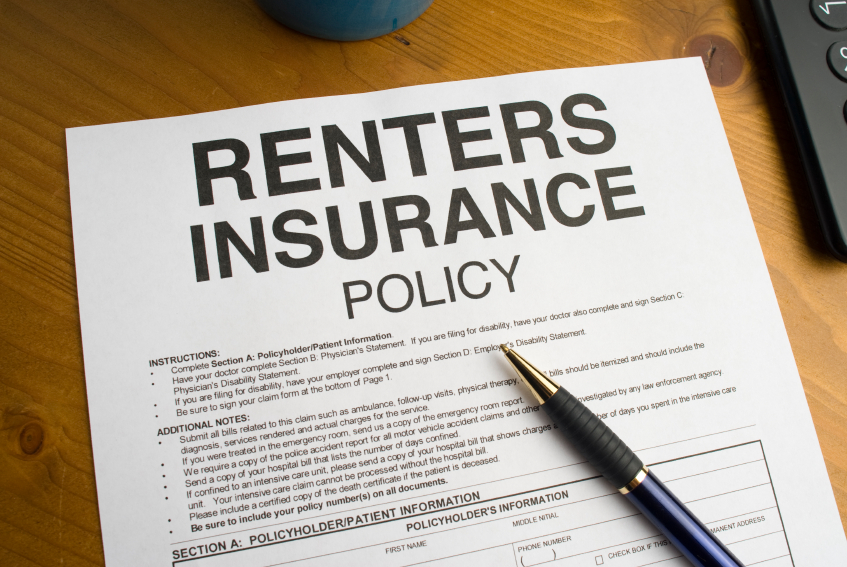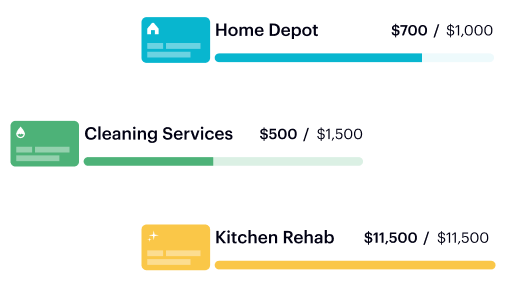While 95% of homeowners have homeowner’s insurance, only 41% of renters have renter’s insurance. This is due to the misconception that all damages that occur at a rental property are the responsibility of the landlord or property manager. However, this is not the case. In this article, we will explain what renter’s insurance is, why it’s a good idea, what it does and doesn’t cover, and how it protects landlords, as well as tenants.
1. What is Renter’s Insurance?
Renter’s insurance, also called landlord’s insurance depending on the policyholder, is designed for those renting or subletting a house, apartment, or any other type of property. It provides protection coverage for the tenant’s personal property if they become stolen or damaged by fire or natural disaster. It also covers liability protection against lawsuits.
What does this mean for renters/tenants?
While any structural damage to the building itself is covered by property insurance, the tenant’s personal belongings will not be. For example, if a fire destroys your furniture and clothing, the rental insurance will help pay for the cost of replacing them.
When you apply for rental insurance, take inventory of all your personal property, like clothing, electronics, and furniture—it adds up! It’s also recommended to take photos to document the value of your items if you ever need to file a claim.
What does this mean for landlords?
Most landlords make renter’s insurance a condition in a new or renewed lease. It not only provides the tenants with their own protection, but it also covers you for financial losses caused by damage to your rental building, as well as other structures on the property. If you or the property owner has a mortgage on the rental property, the mortgage company will most likely require renter’s insurance as a condition for the loan.
2. Why is Renter’s Insurance a Good Idea?
If the unexpected were to happen, like flooding, fires, or theft, and you had to replace all your belongings, would you be able to cover the cost on your own? If you don’t think you can, purchasing renter’s insurance is a good idea.
What does this mean for renters/tenants?
It’s just one of those things that you can’t afford not to have. Renter’s insurance protects tenants from paying out of pocket if your belongings are damaged by a pipe bursting, fire, or theft.
What does this mean for landlords?
Renter’s insurance provides landlords with an added layer of protection should anything happen, such as a lawsuit for bodily injury or property damage caused by the tenant, their family members, or pets. It can also cover relocation expenses in the event of a fire or natural disaster.
3. What Does Renter’s Insurance Cover?
Renter’s insurance covers loss or damage caused by:
- Fire
- Lightning
- Windstorm
- Hail
- A frozen plumbing system
- Theft
- Vandalism
Renter’s insurance may also cover renters if:
- They must relocate
- Someone has injured themselves in your rental
- Items inside or outside your living area are stolen
It’s also helpful to be aware of the exceptions in your region. For example, fire is only covered for low-rise buildings in New York, and most insurance for rental properties does not cover floods or earthquakes.
4. Three Areas of Coverage and Deductibles
Generally, renter’s insurance will include three major types of coverage:
- Personal Property applies to lost or damaged personal belongings including clothing, electronics, or furniture.
- Liability Protection will pay for medical bills, legal fees, or damages in the event of bodily injury or property damage that you’re responsible for.
- Loss of Use will cover additional living expenses for things like housing, storage, and meals, if your place becomes inhabitable.
Deductibles
The deductibles and limits for each type of coverage will depend on your specific renter’s insurance policy. When you purchase an insurance policy, you choose a deductible amount that will be subtracted from future claims payments. In general, a higher deductible will result in lower monthly premiums, and vice versa.
Coverage Limits
Most renter’s insurance policies let you set your own coverage limits. For personal property, you may want to set the coverage limit at $30K if that’s how much your belongings are worth. Personal liability insurance typically starts with a limit of $100,000 per claim, but can be increased to $1M in almost every state. Coverage limits for loss of use are calculated based on your current standard of living. For example, say your rent is $900 per month and you find temporary housing of similar quality and location that costs $1,100 per month. In this case, the cost of additional living expenses covered under renter’s insurance is $200.
5. What Does Renter’s Insurance Not Cover?
Most basic plans won’t cover:
- Jewelry- Most expensive valuables will require additional coverage.
- Home business- If you’re operating a small business from your home, any lost or stolen items might not be covered if they’re considered business property.
- Vehicles- Vehicles require separate coverage even if it’s parked on the property.
- Earthquakes – This coverage generally needs to be added on to basic plans.
6. Is Renter’s Insurance Worth it?
We think so! There are well-priced policies out there, like to protect renters and landlords from the financial burden of all-too-common situations. It could be something as simple as an unattended candle on a table that causes a fire and damages the unit or the whole apartment. Depending on which state you live in, some rental insurance policies cover loss of rent while your building is being repaired.
7. How Much Does Renter’s Insurance Cost?
There’s no one-size-fits-all price when it comes to insurance for rental properties. The national average is around $14 per month, but rates will depend on where you live. Therefore, your friend living in Texas will have a different premium than your cousin renting in New York.
Although it isn’t costly, it’s helpful to see a breakdown of the cheapest and most expensive states for renter’s insurance.
| State | Average annual cost | Average monthly cost |
|---|---|---|
| Louisiana | $262 | $22 |
| Georgia | $243 | $20 |
| Mississippi | $228 | $19 |
| North Dakota and Pennsylvania | $116 | $10 |
| Iowa and Vermont | $110 | $9 |
| Wyoming | $101 | $8 |
FAQs
Aside from location, there are other parameters that factor into your renter's insurance price, so it’s best to discuss these with an agent:
- Previous insurance claims
- Insurer
- Credit history
- Pets
- Coverage limits
- Deductible
Shop around. Different companies offer lower rates based on:
- Bundling your renter's insurance with existing policies like auto insurance
- If you haven't claimed damages in 3-5 years
- Adding security features such as fire or burglar's alarm
It's also worth seeing if your provider offers discounts for paperless billing, paying in full, and if you're a non-smoker.
A standard renter's insurance deductible will typically cost between $500 and $1,000. For instance, if your apartment has water damage from a storm, and the insurance company calculates your loss at $5,000 and your deductible is $500, the insurance company will pay you $4,500. Sometimes the difference between premium and basic coverage is only a couple of dollars. So, opt for what you think you can handle.






